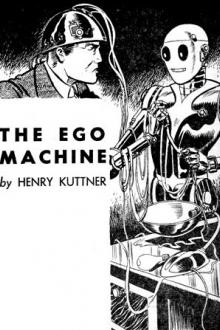Genre Short Story. Page - 9

ay and ate heartily.
III
Retief leaned back, grateful for the lull in the music. The last of the dishes were whisked away, and more glasses filled. The exhausted entertainers stopped to pick up the thick square coins the diners threw.
Retief sighed. It had been a rare feast.
"Retief," Magnan said in the comparative quiet, "what were you saying about dog food as the music came up?"
Retief looked at him. "Haven't you noticed the pattern, Mr. Magnan? The series of deliberate affronts?"
"Deliberate affronts! Just a minute, Retief. They're uncouth, yes, crowding into doorways and that sort of thing...." He looked at Retief uncertainly.
"They herded us into a baggage warehouse at the terminal. Then they hauled us here in a garbage truck----"
"Garbage truck!"
"Only symbolic, of course. They ushered us in the tradesman's entrance, and assigned us cubicles in the servants' wing. Then we were seated with the coolie class sweepers at the bottom of the table.

o Fomalhaut V.
It was a busy two weeks for everyone involved. Captain Peter Wayne, as a central part of the team, spent much of his time planning his attack. His job would be the actual climbing of the mountain where the double-nucleus beryllium was located. It wasn't going to be an easy job; the terrain was rough, the wind, according to Jervis, whipped ragingly through the hills, and the jagged peaks thrust into the air like the teeth of some mythical dragon.
Study of the three-dimensional aerial photographs taken from the Mavis showed that the best route was probably up through one end of the valley, through a narrow pass that led around the mountain, and up the west slope, which appeared to offer better handholds and was less perpendicular than the other sides of the mountain.
This time, the expedition would have the equipment to make the climb. There were ropes, picks, and crampons, and sets of metamagnetic boots and grapples. With metamagnetic boots, Wayne thought, they'd be

want a word again, gentlemen - what do you call that which they give to people when it's found out, at last, that they've never been of any use, and have been paid too much for doing nothing?'
'Compensation?' suggested the vice.
'That's it,' said the chairman. 'Compensation. They didn't give it him, though, and then he got very fond of his country all at once, and went about saying that gas was a death-blow to his native land, and that it was a plot of the radicals to ruin the country and destroy the oil and cotton trade for ever, and that the whales would go and kill themselves privately, out of sheer spite and vexation at not being caught. At last he got right-down cracked; called his tobacco-pipe a gas-pipe; thought his tears were lamp- oil; and went on with all manner of nonsense of that sort, till one night he hung himself on a lamp-iron in Saint Martin's Lane, and there was an end of HIM.
'Tom loved him, gentlemen, but he survived it. He shed a tear over his grave, got very drunk,

ell. Kadin stabbed hard, burying his black knife to the hilt in the man's throat. The small man gurgled and fell. Even in death his face was calm.
They rode hard that night and into the late morning. Sweat poured over Kadin's face and down his braids to his back. Every step his horse took was a new lesson in pain. He passed out at least twice but Lenda's cry woke him before he fell from his mount. If he had fallen, he would have died.
At high sun, when the red orb burned hottest spotted the ragged peaks of their destination, Ava Tog Kar. The ruins looked the same as they had when he had stumbled on them three years earlier. As far as he knew, no one knew of the ruins but him.
Two of the four stone towers tapering from their wide bases to the sharp tips, had crumbled to dust. The northern wall, built of huge sandstone bricks, stood with the remaining two towers. Kadin and Lenda rode around the wall and through a path of sinister granite statues. Each was shaped either as a naked man or wom

e at the desk-lamp. "F(t)--I mean, if you counted the kappa waves of my radio-atomic brain now, you'd be amazed how the frequency's increased." He paused thoughtfully. "F(t)," he added.
Moving quite slowly, like a man under water, Martin lifted his glass and drank whiskey. Then, cautiously, he looked up at the robot again.
"F(t)--" he said, paused, shuddered, and drank again. That did it. "I'm drunk," he said with an air of shaken relief. "That must be it. I was almost beginning to believe--"
"Oh, nobody believes I'm a robot at first," the robot said. "You'll notice I showed up in a movie lot, where I wouldn't arouse suspicion. I'll appear to Ivan Vasilovich in an alchemist's lab, and he'll jump to the conclusive I'm an automaton. Which, of course, I am. Then there's a Uighur on my list--I'll appear to him in a shaman's hut and he'll assume I'm a devil. A matter of ecologicologic."
"Then you're a devil?" Martin inquired, seizing on the only plaus

a red light, that streamed across the ceiling and staved off the shadows from me. The fire! Of course I could still thrust my candle between the bars and relight it.
I turned to where the flames were still dancing between the glowing coals and splashing red reflections upon the furniture; made two steps toward the grate, and incontinently the flames dwindled and vanished, the glow vanished, the reflections rushed together and disappeared, and as I thrust the candle between the bars darkness closed upon me like the shutting of an eye, wrapped about me in a stifling embrace, sealed my vision, and crushed the last vestiges of self-possession from my brain. And it was not only palpable darkness, but intolerable terror. The candle fell from my hands. I flung out my arms in a vain effort to thrust that ponderous blackness away from me, and lifting up my voice, screamed with all my might, once, twice, thrice. Then I think I must have staggered to my feet. I know I thought suddenly of the moonlit corridor, and

culiar difficulties and dangers in it, a long way over and above those which attend all voyages. It must not be supposed that I was afraid to face them; but, in my opinion a man has no manly motive or sustainment in his own breast for facing dangers, unless he has well considered what they are, and is able quietly to say to himself, "None of these perils can now take me by surprise; I shall know what to do for the best in any of them; all the rest lies in the higher and greater hands to which I humbly commit myself." On this principle I have so attentively considered (regarding it as my duty) all the hazards I have ever been able to think of, in the ordinary way of storm, shipwreck, and fire at sea, that I hope I should be prepared to do, in any of those cases, whatever could be done, to save the lives intrusted to my charge.
As I was thoughtful, my good friend proposed that he should leave me to walk there as long as I liked, and that I should dine with him by-and-by at his club in Pall Mall. I accept

eer old stone that is," he went on, pointing to a block of limestone rising out of the turf just beneath the wall.
"It looks like a sort of dwarf pillar, but I suppose it is natural."
"Oh, yes, I think so. I imagine it was brought here, though, as we stand on the red sandstone. No doubt it was used as a foundation stone for some older building."
"Very likely." Dyson was peering about him attentively, looking from the ground to the wall, and from the wall to the deep wood that hung almost over the garden and made the place dark even in the morning.
"Look here," said Dyson at length, "it is certainly a case of children this time. Look at that."
He was bending down and staring at the dull red surface of the mellowed bricks of the wall Vaughan came up and looked hard where Dyson's finger was pointing, and could scarcely distinguish a faint mark in deeper red.
"What is it?" he said. "I can make nothing of it."
"Look a little more closely. Don't you see it is an atte

earnestness. He even found leisure to organize a theatrical company (in which he himself acted with a number of other famous writers of the time), which gave several plays for the benefit of charity. One of these was performed before Queen Victoria.
People have often wondered how Dickens found time to accomplish so many different things. One of the secrets of this, no doubt, was his love of order. He was the most systematic of men. Everything he did "went like clockwork," and he prided himself on his punctuality. He could not work in a room unless everything in it was in its proper place. As a consequence of this habit of regularity, he never wasted time.
The work of editorship was very pleasant to Dickens, and scarcely three years after his leaving the Daily News he began the publication of a new magazine which he called Household Words. His aim was to make it cheerful, useful and at the same time cheap, so that the poor could afford to buy it as well as the rich. His own sto

IN SEARCH OF A RELIGION.
BY MR. BENJAMINS.
CHAPTER I.
"I remember him a little boy," said the Duchess. "His mother was a dear friend of mine; you know she was one of my bridesmaids."
"And you have never seen him since, mamma?" asked the oldest married daughter, who did not look a day older than her mother.
"Never; he was an orphan shortly after. I have often reproached myself, but it is so difficult to see boys."
This simple yet first-class conversation existed in the morning- room of Plusham, where the mistress of the palatial mansion sat involved in the sacred privacy of a circle of her married daughters. One dexterously applied golden knitting-needles to the fabrication of a purse of floss silk of the rarest texture, which none who knew the almost fabulous wealth of the Duke would believe was ever destined to hold in its silken meshes a less sum than L1,000,000; another adorned a slipper exclusively with